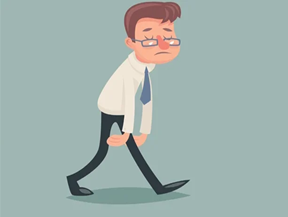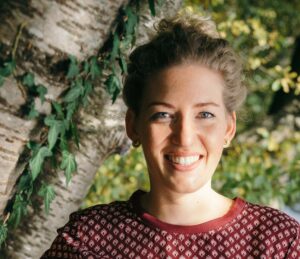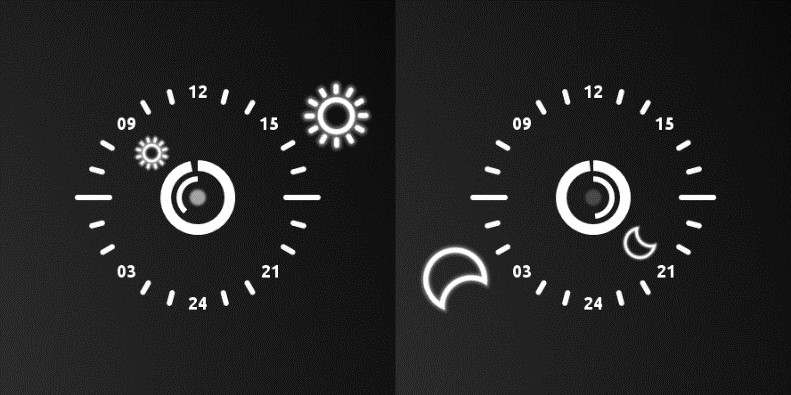Sleep Science Friday: Keep the rhythm of your inner clock
Sleep Science Friday
It’s the end of another week—grab a coffee/tea/beer/wine and end your week with a quick recap of Sleep Science News and ESRS updates!
Keep the rhythm of your inner clock
30 October 2020
After reverting to Standard Time last weekend, days are shorter as the sun sets earlier. And while the usefulness of time changes is debated—what do time shifts actually mean for your health? Although only an hour difference, some scientists suggest that these biannual time changes may be disruptive to our biological rhythms and sleep cycles. Recently, the American Academy of Sleep Medicine recommended in the Journal of Clinical Sleep Medicine that “the acute transition from standard to daylight saving time incurs significant public health and safety risks…[and] these seasonal time changes should be abolished in favor of a fixed, national, year-round standard time.”
Although organisms have their own endogenous circadian rhythms to keep time (see French geophysicist Jean-Jacques d’Ortus de Mairan’s observation of Mimosa pudica leaves in 1729 that laid the foundations of chronobiology), light is a powerful exogenous zeitgeber—or German for “time giver”— that helps us regulate our body’s approximate 24-hour circadian rhythms. The exact length of individual circadian rhythms varies, with diverse expressions in preferred activity and sleep-wake cycles (chronotypes). Therefore, it is suggested that biannual time changes may be disruptive to our internal rhythms by slightly altering the timing cue from natural light.
 Besides acting as a cellular time-keeper, several physiological processes follow your circadian rhythm, with disturbances linked to consequences on overall health, including metabolic disorders, cardiovascular disease, neurodegenerative diseases, and mental health. This biological clock is also known to play a part in peak athletic ability (as seen in Olympic athletes) and natural birth times. Some studies found increases in mortality (Poteser and Moshammer, 2020), traffic accidents (Fritz et al., 2020; Martin-Olalla, 2020), and even wildfires (Kountouris, 2020), surrounding DST-transitions. More recently Zhang et al. (2020) found altered levels of risk for cardiovascular diseases (e.g. heart attacks), injuries, mental and behavioral disorders, and immune-related diseases. However, interpretation of these results requires caution, as the magnitude, long-term effects, and underlying mechanisms still need to be clarified. Geographic location should also not be discounted, as those in higher latitudes experience more extreme changes between winter and summer months.
Besides acting as a cellular time-keeper, several physiological processes follow your circadian rhythm, with disturbances linked to consequences on overall health, including metabolic disorders, cardiovascular disease, neurodegenerative diseases, and mental health. This biological clock is also known to play a part in peak athletic ability (as seen in Olympic athletes) and natural birth times. Some studies found increases in mortality (Poteser and Moshammer, 2020), traffic accidents (Fritz et al., 2020; Martin-Olalla, 2020), and even wildfires (Kountouris, 2020), surrounding DST-transitions. More recently Zhang et al. (2020) found altered levels of risk for cardiovascular diseases (e.g. heart attacks), injuries, mental and behavioral disorders, and immune-related diseases. However, interpretation of these results requires caution, as the magnitude, long-term effects, and underlying mechanisms still need to be clarified. Geographic location should also not be discounted, as those in higher latitudes experience more extreme changes between winter and summer months.
For those who are young, healthy, and not sleep deprived—effects of time changes may be limited. However, in increasingly sleep-deprived societies, this shift may place enough pressure on your circadian rhythms to affect your immune response and put you at risk for adverse health events. Lack of sleep may also reduce the antibody response to certain vaccines, an important consideration during the COVID-19 pandemic and surge in second waves across Europe.
So, how is our sleep affected during the pandemic and what are ways we can limit disruptions to our circadian rhythms and sleep? Ask an ESRS sleep scientist!

Dr. Christine Blume, a sleep researcher at the Centre for Chronobiology in Basel Switzerland and ESRS Early Career Researcher Network Committee member, notes that there could be a silver lining for those who are able to work from home.
COVID-19 cases are rising and more people return to working from home. This can be challenging, for example because work and leisure time becomes difficult to separate. However, the resulting increased flexibility of working hours and social schedules has been shown to also increase sleep duration and improve the alignment between internal biological and external social signals (Blume et al., 2020; Wright et al., 2020; Leone et al., 2020). Thus, from a sleep health perspective, working from home also has beneficial effects.
Dr. Blume also provided several tips earlier this year for those experiencing anxiety and difficulties with sleeping, including maintaining a work-life-sleep balance; staying active (walking around the block or working out at home); getting enough natural light (outside if possible, or near a bright window); being mindful of our electronic device habits (e.g. avoiding your phone before bed); and lastly, “Never work in your bed, only sleeping and sex are allowed in bed.”
Recent publications on circadian rhythms:
Ahmad et al. (2020) The Effects of Circadian Rhythm Disruption on Mental Health and Physiological Responses among Shift Workers and General Population
Ciulla et al. (2020) Circadian Rhythm and Glaucoma: What do We Know?
Daou et al. (2020) Abnormal Sleep, Circadian Rhythm Disruption, and Delirium in the ICU: Are They Related?
Federoff and McCarthy (2020) Sleep and circadian rhythm disruption is corrected by lithium in a case of bipolar disorder with familial BRCA1 mutation
Kaur et al. (2020) Circadian rhythm and its association with birth and infant outcomes: research protocol of a prospective cohort study
Kim et al. (2020) Association between misalignment of circadian rhythm and obesity in Korean men: Sixth Korea National Health and Nutrition Examination Survey
Matenchuk et al. (2020) Sleep, circadian rhythm, and gut microbiota
Reiter et al. (2020) Circadian disruption, melatonin rhythm perturbations and their contributions to chaotic physiology
Sharma et al. (2020) Circadian rhythm disruption and Alzheimer’s disease: The dynamics of a vicious cycle
Thomas et al. (2020) Circadian rhythm phase shifts caused by timed exercise vary with chronotype
Zhang et al. (2020) Circadian rhythm and atherosclerosis (Review)
For similar articles on circadian rhythms, COVID-19 and sleep—see past SSFs:
- What time is it? (23 October 2020)
- Sleep in the time of COVID (5 October 2020)
- COVID-19 and sleep (31 July 2020)
Interested in or working on sleep and sleep-related research and medicine?
Attendees of the virtual edition of the 25th Congress of the ESRS (22 – 24 September 2020) still have access to all our amazing talks and posters online—extended until the 30 November 2020! For those who were unable to attend, stay tuned as we work on making the Congress more widely available on our ESRS website. The abstracts of ESRS2020 were published in a Special Edition of the Journal of Sleep Research (Vol 29, Issue S1).
For more sleep talks—Sleep and Breathing will now be held on 16 – 17 April 2021 (note the change from 3 to 2 days). Although originally planned in Prague, the conference will now be entirely virtual in consideration for the health and safety of our attendees, organizers, and speakers during uncertainties surrounding the COVID-19 pandemic. Organized by the ESRS and the European Respiratory Society, #SleepBreathe21 will be the largest pan-European meeting of its kind—offering an integrated approach in the investigation and treatment of sleep disorders with a focus on sleep respiratory medicine and science. See the scientific programme available online. Abstract submission deadline has been extended until Friday 27 November 2021.
For those of you preparing for the 2021 Examination in Sleep Medicine, please note that the exam has been postponed until September 2021 and will be online only.
Have a great weekend and stay safe!
Just published an article? Want your research to be featured? Saw something interesting? Contact: doris.wu [ at ] esrs.eu.
Not an ESRS member yet? Apply here and see our wide range of benefits, including a yearly online subscription to the Journal of Sleep Research, automatic membership to the Federation of European Neuroscience Societies (FENS), support for early career researchers via the ECRN, regular updates via the ESRS Newsletter, promotion of your research, and more.





